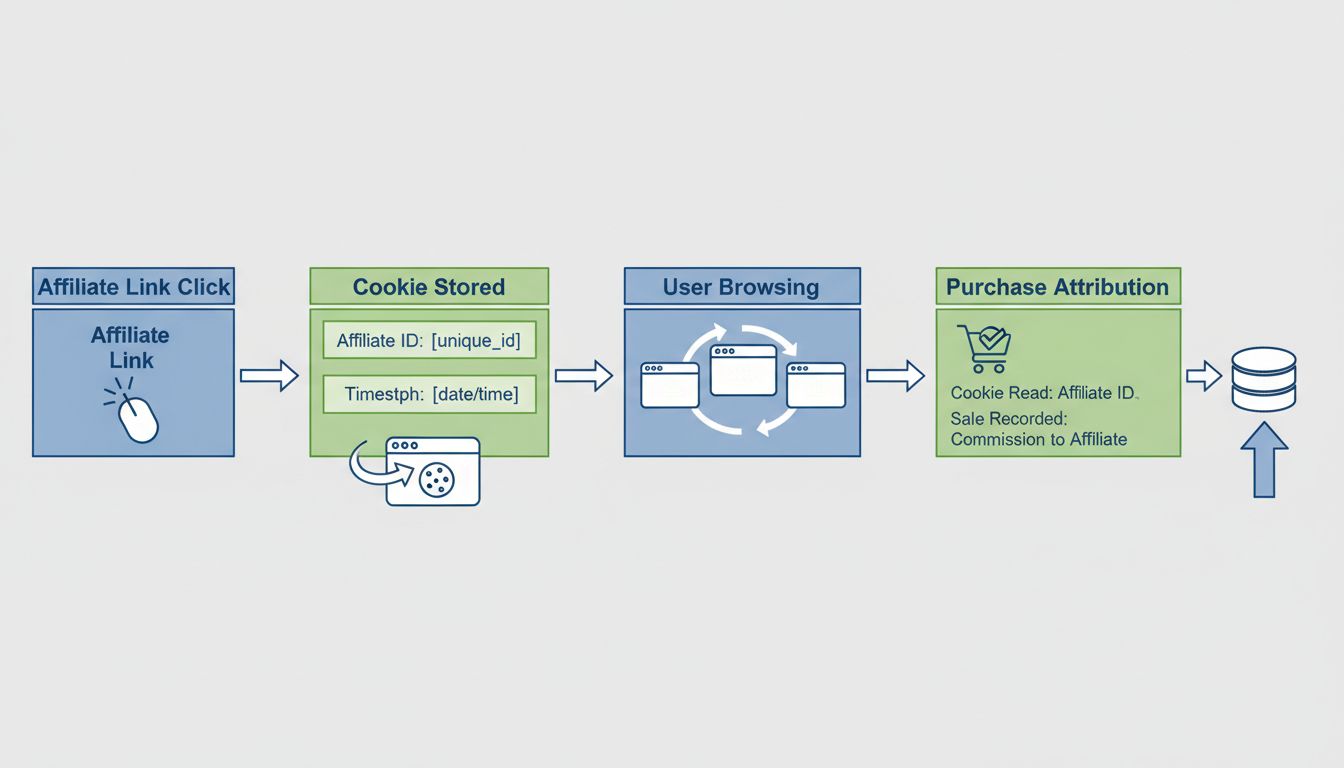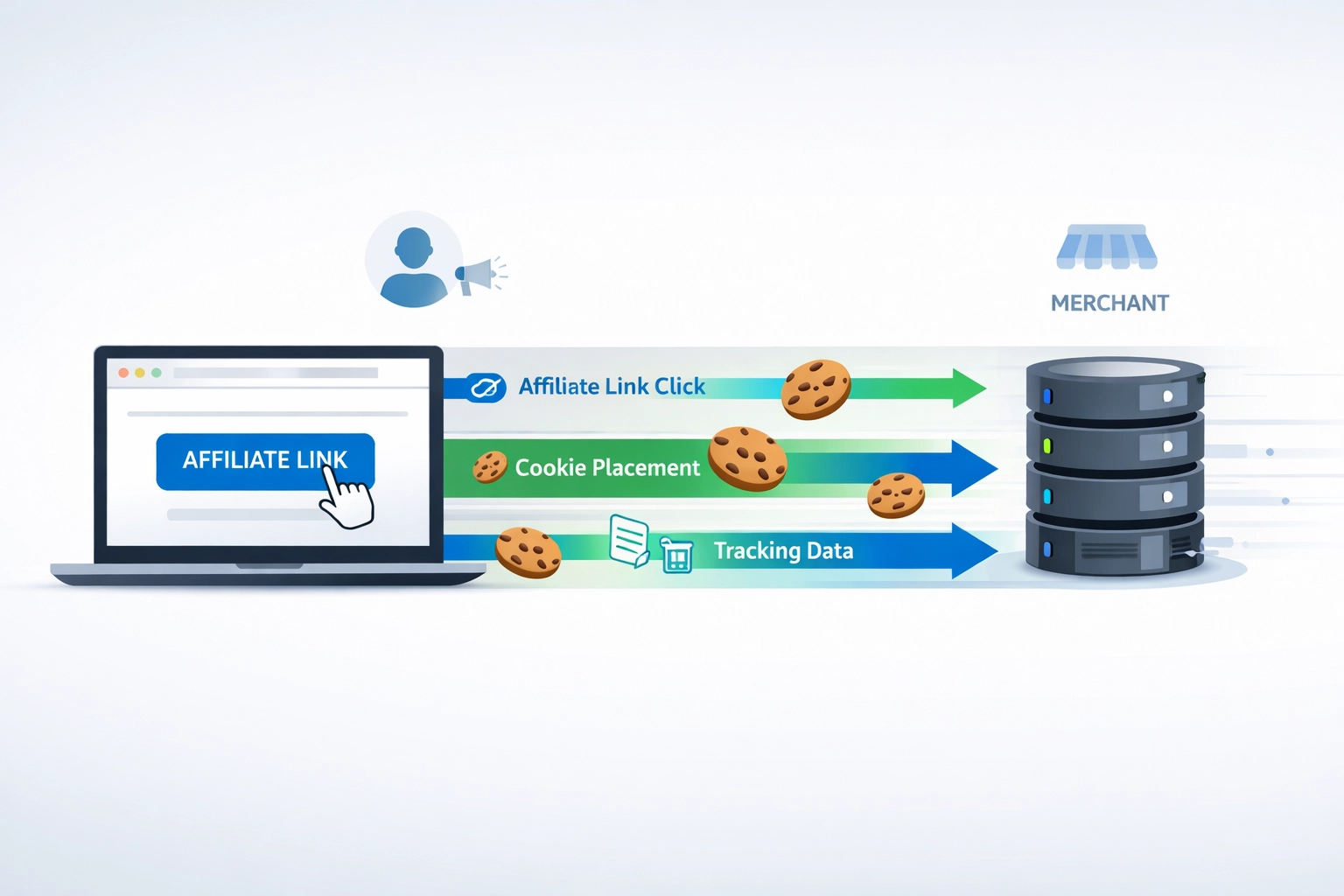
What is Cookie Tracking in Affiliate Marketing?
Learn how cookie tracking works in affiliate marketing. Understand cookie duration, attribution, privacy regulations, and why PostAffiliatePro is the best solut...
Learn what cookies are, how they’re used in affiliate marketing for tracking sales and commissions, and the implications of moving towards a cookieless future.
A cookie in affiliate tracking is a small text file stored on a user’s device that contains data about the user’s interactions with an affiliate link. These cookies are essential for tracking user activities, attributing sales or leads to the correct affiliate, and enabling accurate calculation of affiliate commissions . In the context of affiliate marketing , when a user clicks on an affiliate link, a cookie is placed on their device to track their activities and determine conversions.
Cookies are pivotal in ensuring that affiliates are rewarded for their marketing efforts and play a crucial role in the affiliate marketing ecosystem by facilitating accurate attribution, performance measurement, and user experience personalization.
Every affiliate cookie has a lifetime, which defines a length of the relation between an affiliate and guest. During this time, affiliates receive a commission for the sale or other action. It is important to set the right cookie time in your affiliate program. Read our article and learn more about it.
First-party cookies are set directly by the website the user is visiting. They are primarily used to maintain session data, personalize the user experience , and store user preferences. In affiliate marketing , first-party cookies can be leveraged to track user interactions without relying on third-party data, thereby ensuring compliance with privacy regulations like the General Data Protection Regulation (GDPR). As the industry shifts towards a privacy-focused approach, first-party cookies have become increasingly important.
Third-party cookies are created by domains other than the one the user is currently visiting. They have been widely used in affiliate marketing to track user behavior across different websites, enabling the creation of detailed user profiles for targeted advertising. However, due to privacy concerns and regulatory changes, such as those brought about by GDPR and the ePrivacy Directive, major browsers like Chrome, Safari, and Firefox are phasing out support for third-party cookies.
The deprecation of third-party cookies poses a significant challenge for affiliate marketers , as these cookies have been integral to tracking user actions and attributing them to the correct affiliate. Consequently, the industry is exploring alternative methods for tracking user interactions in a privacy-compliant manner.
Cookies are integral to affiliate marketing as they facilitate:
The use of third-party cookies has been increasingly restricted due to privacy concerns and regulatory changes. Major browsers have implemented measures to block third-party cookies, driving the industry to seek alternative tracking methods . This shift is largely driven by the need to enhance user privacy and comply with regulations like GDPR.
The deprecation of third-party cookies poses challenges but also presents opportunities for innovation in affiliate marketing:

Google uses cookies in order to collect data about how users interact with their services. This data is then used to improve the user experience by tailoring content and ads to the individual user.
You can manage cookies by setting your browser to refuse cookies, delete cookies, or alert you when a cookie is placed on your device.
An Amazon affiliate cookie lasts for 24 hours.
Discover how cookies and alternative tracking methods can help you optimize your affiliate marketing strategies and ensure accurate commission attribution.

Learn how cookie tracking works in affiliate marketing. Understand cookie duration, attribution, privacy regulations, and why PostAffiliatePro is the best solut...

Discover why longer cookie lifetimes don't always benefit affiliates. Learn how purchase cycles, attribution models, and privacy regulations impact cookies.

Learn how cookie tracking works in affiliate marketing, including cookie duration, types, compliance, and best practices for accurate attribution.
Cookie Consent
We use cookies to enhance your browsing experience and analyze our traffic. See our privacy policy.